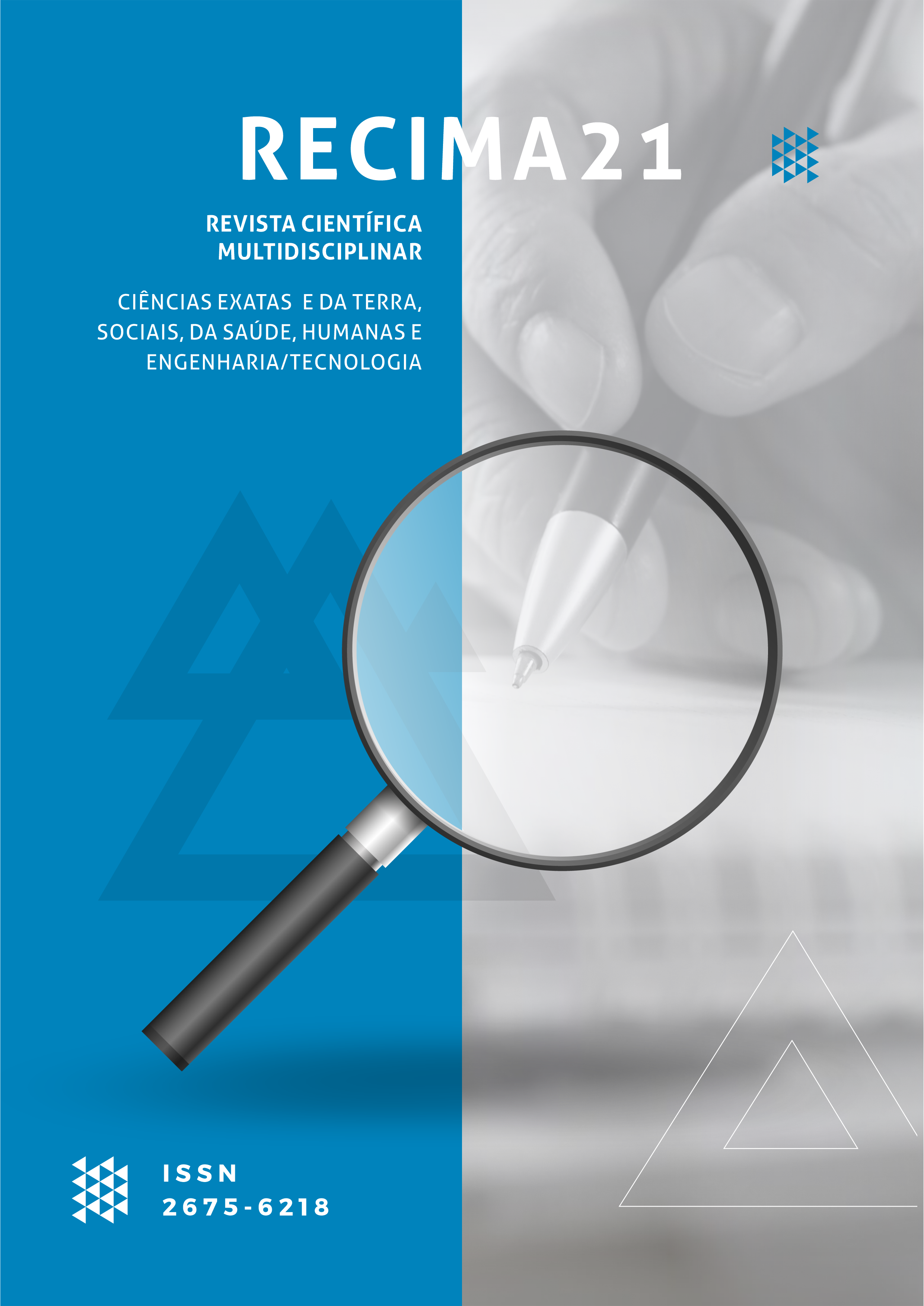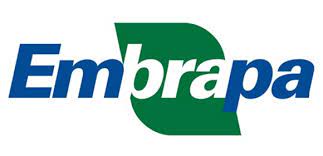THE HISTORICAL CHALLENGES IN FAMILY FARMING
DOI:
https://doi.org/10.47820/recima21.v3i12.2319Keywords:
investigate family farming, its process of contribution to socioeconomicAbstract
The main objective of this study is to investigate family farming, its process of contribution to socioeconomic development. This theme arouses interest for researchers, farmers of family economy, public policies. The trajectory of the research tracks a dialogue with Bourdieu's theoretical contributions for analysis and reflections, nature, specificities and foundations for family farming. To investigate this process, methodological paths rely on bibliographic, descriptive, qualitative research on family agriculture. The results of the research allow the specificities of family farming, by constituting, organizing and surviving throughout history, which refers to the role of the importance of family farming in the Brazilian rural context, particularly with regard to its resilience in a framework of concentration of production and demographic emptying of the field. It is pointed out as a suggestion, that for greater qualification of this discussion, it is necessary three factors: first, the analysis of advances in the conceptual area; second, the conduct of empirical research with the sector; and third, the importance of new perspectives on sectoral and regional diversity in Brazil, considering the diversities for its definition and modalities of family farming.
Downloads
References
ABRAMOVAY, R. Paradigmas do Capitalismo Agrário em Questão. São Paulo: HUCITEC, 1992.
AGRICULTURA FAMILIAR <> - Acessado em 13 .outubro.2022
BERDEQUÉ, J.A., y SCHEITMAN, A. La desigualdad y la pobreza como desafíos para el desarrollo rural. Santiago de Chile: Centro Latinoamericano para el Desarrollo Rural, RIMISP, 2007
BOURDIEU, P. Razones prácticas. Sobre la teoría de la acción. Barcelona: Anagrama, 2000
BOURDIEU, P. Célibat et condition paysanne, Rural Etudes -Les Strategies matrimoniales dans le systeme des Strategies de reprodução ", Annales, 4-5, julho-outubro de 1972.
BRASIL. Lei n. 11.326, de 24 de julho de 2006. Estabelece as diretrizes para a formulação da Política Nacional da Agricultura Familiar e Empreendimentos Familiares Rurais. Diário Oficial da União: seção 1, Brasília, DF, ano 143, n. 141, p. 1-2, 25 jul. 2006. Disponível em: http://www.planalto.gov.br/ccivil_03/_ ato2004-2006/2006/lei/l11326.htm. Acesso em: out. 2022.
CARTON, de G. H. El concepto de nueva ruralidad. En: E. Pérez, M. A. Farah y H. Carton de Grammont (Comps.), La nueva ruralidad en América Latina. Avances teóricos y evidencias empíricas (pp. 23-44). Bogotá: Pontificia Universidad Javeriana, Clacso. 2008
CASTELL, M. La era de la información. Economía, sociedad y cultura. Madrid: Alianza Editorial, 1999.
CHIAPPE, M., B. G. F., DOGLIOTTI MORO, S. Indicadores sociales para la evaluación de la sustentabilidad de sistemas de producción familiares intensivos. En: Tolón Becerra, A., y Lastra Bravo, X. (Eds.). Actas del II Seminario Internacional de Cooperación y Desarrollo en Espacios Rurales Iberoamericanos. Sostenibilidad e indicadores (pp. 173-88). Almería, España: Universidad de Almería/AECID. 2008
CHIRIBOGA, M. Innovación, conocimiento y desarrollo rural. Documento RIMISP, 2003. Recuperado el 21 de septiembre de 2009.
COOKE, B., KOTHARI, U. Participation: the new tyranny? London: Zed., 1998
DANSE, M. y V. S. Small-scale Farmer Access to International Agri-food Chains. Greener Management International, 2005
EMBRAPA. Disponível: https:///www.embrapa.br/pt/web/portalpesquisa-e-desenvolvimento/portfolios. Acessado em maio de 2022.
ELDERl, S.D.; ZERRIFFI, H.; BILLONET, L. P.. Is Fairtrade certification greening agricultural practices? An analysis of Fairtrade environmental standards in Rwanda. Journal of Rural Studies, 2013
GÓMES, S. La “Nueva Ruralidad” ¿Qué tan nueva? Chile: Universidad Austral de Chile, Ediciones Ltda, 2002
FARAH, M. A. Cambios en las relaciones de género en los territorios rurales: aportes teóricos para su análisis y algunas hipótesis. Revista Cuadernos de Desarrollo Rural, 5 (61), 2008
FAWAZ, M. J., y SOTO, P. Familia rural en la región del Bío-Bío, Chile. Entre la continuidad y el cambio. En: Zicavo, N. (Comp.) La familia en el siglo xxi (pp. 153-70). Concepción, Chile: Ed. Univ. del Bío-Bío, 2007.
FRIEDLAND, W. H. Agriculture and Rurality: Beginning the “Final Separation”? Rural Sociology, 67(3),2002
GALLOPIN, G. Los indicadores de desarrollo sostenible: aspectos conceptuales y metodológicos. Seminario de Expertos sobre Indicadores de Sostenibilidad en la formulación y seguimiento de políticas. Santiago de Chile: FAO-Fodepal (paper). 2006
GARCIA B. J. Los procesos rurales en el ámbito de la Unión Europea. En H. Carton de Grammont y H. Tejera (Coords.), La sociedad rural mexicana frente al nuevo milenio (Vol. II, pp. 35-68). México D. F.: INAH, UNAM, UAM, Plaza y Valdés,1996
GÓMES, S. La “nueva” ruralidad”. ¿Qué tan nueva? Santiago de Chile: LOM Ed. 2002
GRAJALES, S., et. ál. Las construcciones teórico conceptuales sobre la nueva ruralidad. En M. Hernández González e I. Meza Huacuja (Coords.), Nueva ruralidad. Enfoques y propuestas para América Latina (pp. 29-69). México D. F.: Centro de Estudios para el Desarrollo Rural Sustentable y la Soberanía Alimentaria, 2006.
GUBRIUM J.F.; JAMES A. H. What is Family?, Mountain View, Cal., Mayfield, Publishing Co, 1990.
KATLY S.M.; MÉNDEZ, V.E.; OLSON, M.B. Los meses flacos': seasonal food insecurity in a Salvadoran organic coffee cooperative. The Journal of Peasant Studies, 40 (2), 2013
LASTRA, X., TOLÓN, A., RAMIÍREZ, M.. Metodologías para la caracterización de los sistemas de indicadores de sostenibilidad y análisis de su evolución. En: Tolón, A., y Lastra, X. (Eds.). Actas del II Seminario Internacional de Cooperación y Desarrollo en espacios rurales iberoamericanos. Sostenibilidad e indicadores (pp. 213-25). Almería, España: Universidad de Almería/AECID, 2008
LLAMBÍ, L. Nueva ruralidad, multifuncionalidad de los espacios rurales y desarrollo local endógeno. En E. Pérez y M. A. Farah (Eds.), Desarrollo rural y nueva ruralidad en América Latina y la Unión Europea (pp. 91-107). Bogotá: Pontificia Universidad Javeriana, 2004
MENDÉN, V.E.; BACON, C.M.; OLSON, M.; PETCHERS, S.; HERRADOR, D.; CARRANZA, C.; TRUJILLO, L.; Guadarrama-Zugasti, C.; Cordón, A.; Mendoza. A. Effects of Fair Trade and organic certifications on small-scale coffee farmer households in Central America and Mexico. Renewable Agriculture and Food Systems, 25 (3), 2010
MORRISSEY, J. (2000). Indicators of citizen participation: lessons from learning teams in rural EZ/EC communities. Community Development Journal, 35 (1), 2000
PÉREZ, E. Desafíos sociales de las transformaciones del mundo rural: nueva ruralidad y exclusión social. En: Chile rural. Un desafío para el desarrollo humano (pp. 17-32). Santiago: Programa de Naciones Unidas para el Desarrollo/ Gobierno de Chile, 2005
PÉREZé, E., y FARAH, M.A. Nueva ruralidad en Colombia. En M. Hernández González e I. Meza Huacuja (Coords.), Nueva ruralidad. Enfoques y propuestas para América Latina (pp. 77-126). México D. F.: Centro de Estudios para el Desarrollo Rural Sustentable y la Soberanía Alimentaria, 2006
RIELLAi, A., R.. J. Nueva ruralidad y empleo no agrícola en Uruguay. En M. Bendini y N. Steimbreger (Coords.), Territorios y organización social en la agricultura (pp. 157-164). Buenos Aires: GESA-Editorial La Colmena, 2003
SEPÚLVEDA, S., CHAVARRÍA, H., ROJAS, P., y B, M. Metodología para estimar el nivel de desarrollo sostenible en espacios territoriales. En: Sepúlveda, S. (Comp.). Biograma: metodología para estimar el nivel de desarrollo sostenible de territorios (pp. 23-46). Costa Rica: IICA, 2008
SOINI E. 2005. Changing livelihoods on the slopes of Mt. Kilimanjaro, Tanzania: Challenges and opportunities in the Chagga homegarden system. Agroforestry Systems, 2005.
SPEELMAN E.N.; GROOT J.C.J.; GARCIA-BARRIOS, L.E.; KOK, K.; KEULEN v. H.; TITTONELLi, P. From coping to adaptation to economic and institutional change-Trajectories of change in land-use management and socialorganization in a Biosphere Reserve community, Mexico. Land Use Policy , 2014
TEUBAL, M. Globalización y nueva ruralidad en América Latina. En: ¿Una nueva ruralidad en América Latina? Buenos Aires: Clacso, 2001
VALDÉS, X. La vida en común. Familia y vida privada en Chile y el medio rural en la segunda mitad del siglo XX. Santiago: LOM/Usach,2007
WOODS M. Engaging the Global Countryside: Globalization, Hybridity and The Reconstitution of Rural Place. Progress in Human Geography, 31(4), 2007
WANDERLEY, Maria de Nazareth Baudel. Raízes Históricas do Campesinato Brasileiro. In: TEDESCO, João Carlos (org.). Agricultura Familiar Realidades e Perspectivas. 2 a. ed. Passo Fundo: EDIUPF, 1999. Cap. 1, p. 21-55.
Downloads
Published
How to Cite
Issue
Section
Categories
License
Copyright (c) 2022 RECIMA21 - Revista Científica Multidisciplinar - ISSN 2675-6218

This work is licensed under a Creative Commons Attribution 4.0 International License.
Os direitos autorais dos artigos/resenhas/TCCs publicados pertecem à revista RECIMA21, e seguem o padrão Creative Commons (CC BY 4.0), permitindo a cópia ou reprodução, desde que cite a fonte e respeite os direitos dos autores e contenham menção aos mesmos nos créditos. Toda e qualquer obra publicada na revista, seu conteúdo é de responsabilidade dos autores, cabendo a RECIMA21 apenas ser o veículo de divulgação, seguindo os padrões nacionais e internacionais de publicação.

 Clique para ver detalhes
Clique para ver detalhes 











